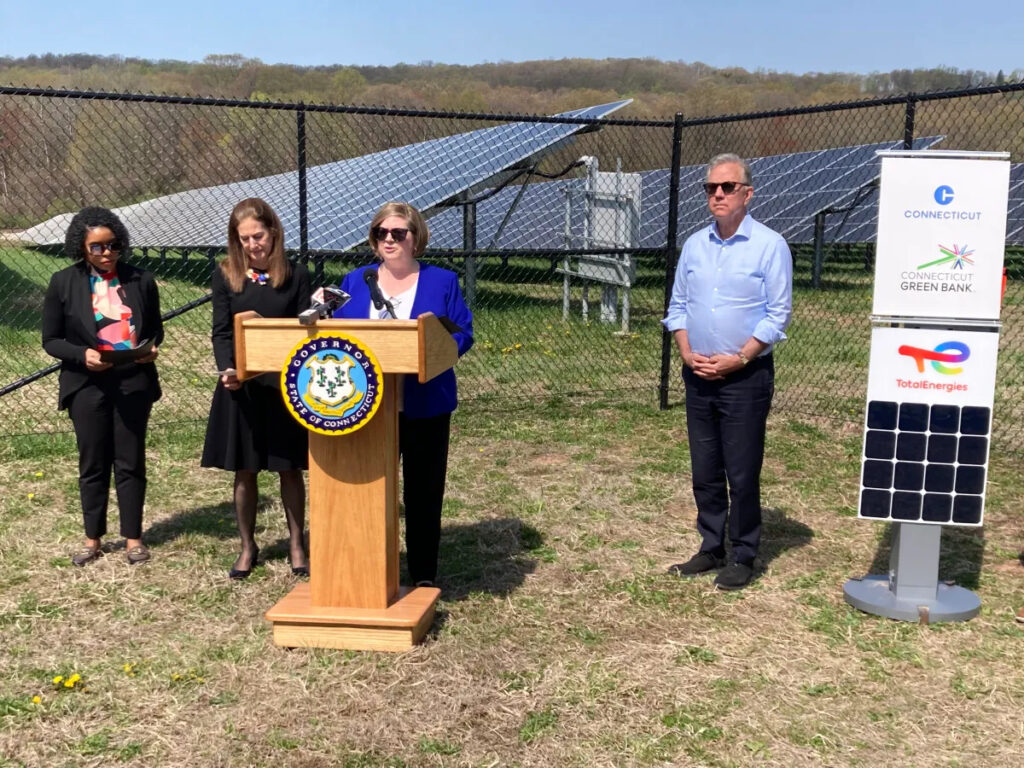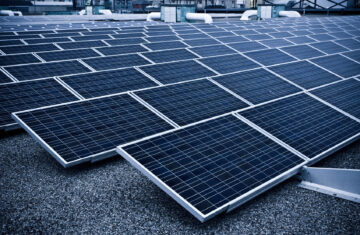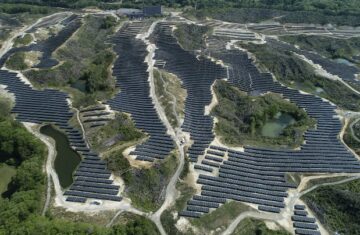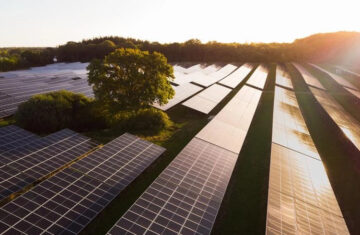Connecticut Governor Ned Lamont announced the completion of seven solar projects at correctional facilities in Enfield, Cheshire, and Somers, marking a significant step towards sustainable energy use in state institutions. Standing before a field of 4,500 Canadian solar panels at the Cheshire Correctional Institution, Lamont highlighted the benefits of these installations, which will power several correctional facilities and contribute to the state’s renewable energy goals.
The newly installed solar panels are expected to save the Connecticut Department of Correction an estimated $11 million in energy costs over the next 25 years. The projects, which include over 15,000 panels across the seven facilities, are projected to reduce carbon dioxide emissions by approximately 5,000 metric tons annually—equivalent to the emissions produced by 5.4 million pounds of coal.
Nikki Dow, a solar project manager with the Connecticut Green Bank, noted that the project broke ground in 2023 and reached completion by the end of 2024. The solar panels have already been operational for several months, delivering renewable energy to the facilities.
The initiative is a collaborative effort between the Connecticut Green Bank and TotalEnergies, with the latter investing $20 million into the project. The state of Connecticut did not incur any costs for the installation. TotalEnergies will charge the state a fixed rate of 7.5 cents per kilowatt-hour for electricity over the next 25 years, ensuring predictable energy costs for the correctional facilities.
Governor Lamont commended the public-private partnership, stating, “This is how we can reduce load on our grid, hold down peak usage, and make a difference for everyone’s lives.” He emphasized that the solar panels contribute to energy efficiency, particularly noting the recent decrease in regional power demand.
According to Chris Iwan, director of engineering for the Department of Correction, the solar panels can provide 85% to 90% of the energy needs at peak times for the Cheshire facility. The energy output varies among the different facilities and throughout the year, adapting to seasonal energy demands.

In addition to the prison solar projects, the Connecticut Department of Administrative Services has established a power purchase agreement with the Connecticut Green Bank, allowing for further solar developments in various state properties. Michelle Gilman, Commissioner of the Department of Administrative Services, mentioned ongoing solar initiatives at technical high schools, state properties in Hartford, and the Department of Labor headquarters in Wethersfield.
Experts in renewable energy have praised this initiative as a model for other states to follow. Dr. Emily Carter, a renewable energy analyst, stated, “Projects like these not only provide cost savings but also serve as a crucial step in reducing carbon footprints in state facilities.”
The completion of solar projects at Connecticut’s correctional facilities represents a significant advancement in the state’s commitment to renewable energy and sustainability. With substantial cost savings and reduced emissions, this initiative exemplifies how public-private partnerships can drive positive environmental change.



